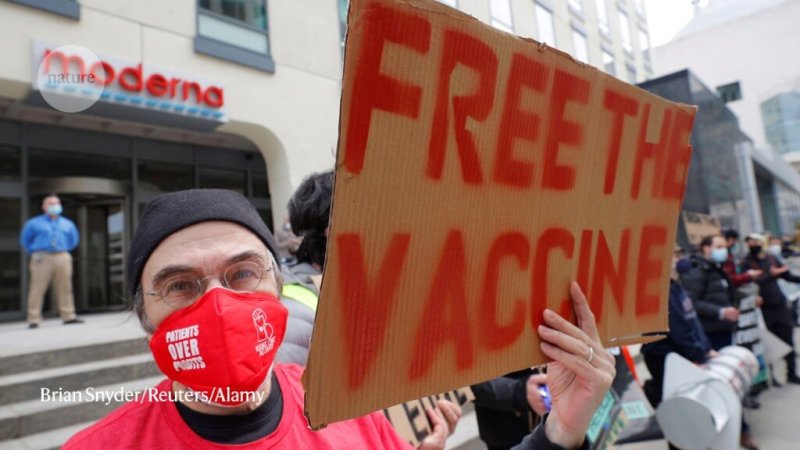To get the pandemic under control ― a universal goal, to be sure ― a growing number of voices in public health and global politics are demanding greater consideration of vaccine equity.
One proposal making the rounds would temporarily remove intellectual property barriers to producing vaccines and coronavirus-related treatments.
…
Some 400 European lawmakers have signed onto a letter of support for the waiver alongside a group of more than 100 Nobel laureates and heads of state.
…
One concern is that intellectual property protections are essential to create incentives for innovation ― that is, without TRIPS protections, companies will be less interested in putting up the money for coronavirus-related research and development.
In their written response, the group argues that when exclusive rights are enforced, pharmaceutical companies actually “slow down research and innovation.” Sharing technology and know-how encourages innovation by generic competitors and lowers prices for lifesaving drugs, they argue.
Proponents of the waiver also point out that the companies that developed these drugs received huge sums of public money for research and development ― they didn’t shoulder all of the financial risk themselves.
The governments of India, South Africa and other nations say the idea that the pharmaceutical industry will voluntarily solve the problem of global vaccine equity is “completely divorced from reality.”































